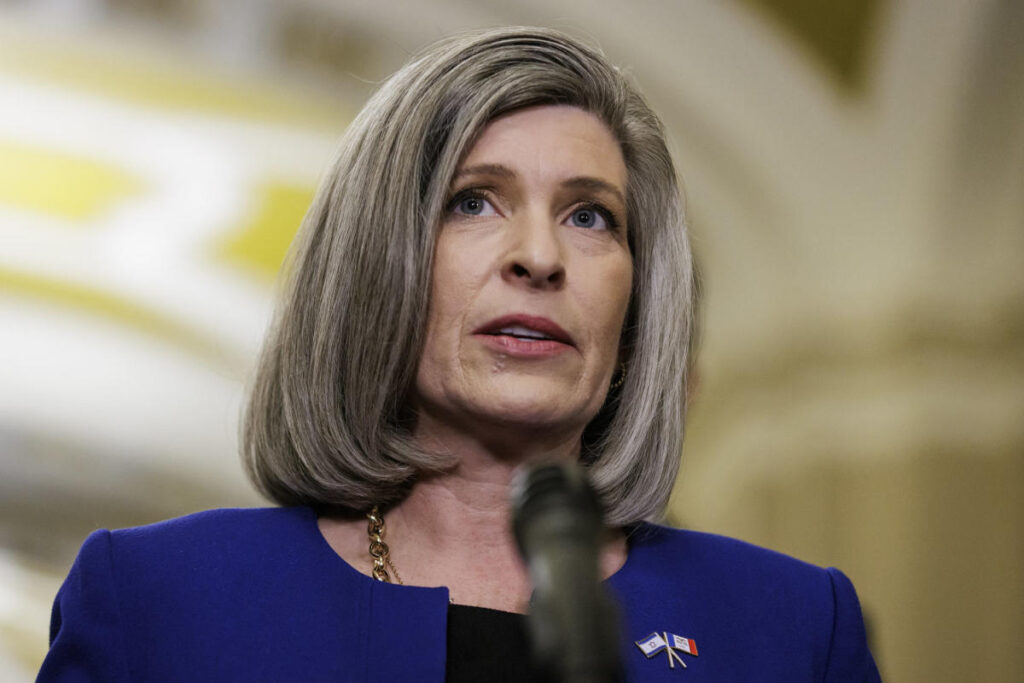Republican Senator Joni Ernst finds herself navigating potential intraparty unrest in Iowa as she considers her support for President-elect Donald Trump’s defense secretary nominee, Pete Hegseth. This situation has stirred speculation about possible challenges she may face from the right in her 2026 re-election bid. While Ernst maintains a degree of popularity among Iowa Republicans and possesses strong conservative credentials, grassroots discontent is evident among certain factions. Conversations with state Republican leaders reveal a divide, where some grassroots conservatives express frustration with Ernst’s perceived lack of support for Trump’s Cabinet picks, while others suggest that the anger is more a product of online discourse rather than actual voter sentiment.
The episode underscores broader pressures that Republican legislators have faced during the Trump presidency. With Trump’s looming return to power, officials recognize that their positions may be jeopardized by the president’s vengeful tendency toward perceived disloyalty. Activists who see high-profile situations as opportunities to exert pressure on politicians exacerbate this atmosphere. Bob Vander Plaats, an influential Iowa evangelical, captures this sentiment by asserting that Iowans expect their leaders to embrace Trump’s agenda fully. Despite this dissent, some more moderate Republican voices, like Story County GOP Chair Brett Barker, believe that the anger toward Ernst is overblown and that many voters remain disconnected from more extreme views espoused on social media.
Ernst’s position regarding Hegseth, who has faced past allegations of misconduct, remains uncertain. Even after meeting with him, Ernst has not committed to a definitive vote. Her cautious stance, accompanied by some public statements regarding the ongoing verification of Hegseth’s credentials, has not assuaged the frustrations of her critics. Local GOP leaders have noted escalating dissatisfaction, especially in areas aligned closely with the MAGA movement. They suggest that her hesitancy to fully endorse Hegseth could potentially energize opposition against her ahead of the primary election, a concern corroborated by comments from various local party chairs.
Despite the potential for a primary challenge, no prominent Republican has yet declared intent to run against Ernst. However, conservative pundits, including Steve Deace, have floated the idea that a challenge could materialize, especially if Ernst does not align with Trump’s nominee. Deace has stated bluntly that Trump remains a pivotal figure; if he does not support an incumbent, their political future may be uncertain. Furthermore, figures like Turning Point USA’s Charlie Kirk have openly suggested that senators opposing Trump’s picks should expect challengers. Ernst’s camp dismisses these threats, framing them as attention-seeking rhetoric that does not resonate with the average Iowan voter.
As the speculation of potential challengers heats up, prominent Iowa Republicans differ in their views about the legitimacy of Ernst’s vulnerability. Some strategists argue that public sentiment reflects more division online than on the ground, suggesting a disconnect between grassroots activism and general voter concerns. Ernst’s allies emphasize that her conservative record—highlighted by efforts to reduce government spending—demonstrates her unwavering commitment to her constituents. They resist characterizing her as a “Republican in Name Only” (RINO), framing opposition to her as exaggerated. However, Ernst’s past votes, particularly her approval of the Respect for Marriage Act, have sparked serious contention, leading to censure in certain GOP circles.
The ongoing discourse surrounding Ernst’s support for Trump’s Cabinet choices encapsulates a wider struggle for Republican senators in the current political climate. Voter anger, galvanized by a strong anti-establishment sentiment, has made primaries increasingly perilous for incumbents. Even though Ernst has indicated intentions to run for a third term, she must tread carefully in an environment where any perceived indecision could attract formidable challengers. The emergence of other Trump allies, like former Acting Attorney General Matt Whitaker, as potential candidates further complicates her position.
Despite the rising tensions and fissures within the party, many loyalists hold the view that Ernst is capable of overcoming these challenges. Some commentators assert that it is premature to speculate about primary opposition, particularly as key votes on Trump’s priorities are still pending. Observers highlight that Ernst’s commitment to Iowa’s interests and overall conservative policies will help solidify her standing as a viable candidate going forward. As the situation continues to evolve, the political landscape in Iowa will serve as a crucial litmus test for the Republican Party’s unity and direction under an increasingly high-profile Trump-led agenda.

